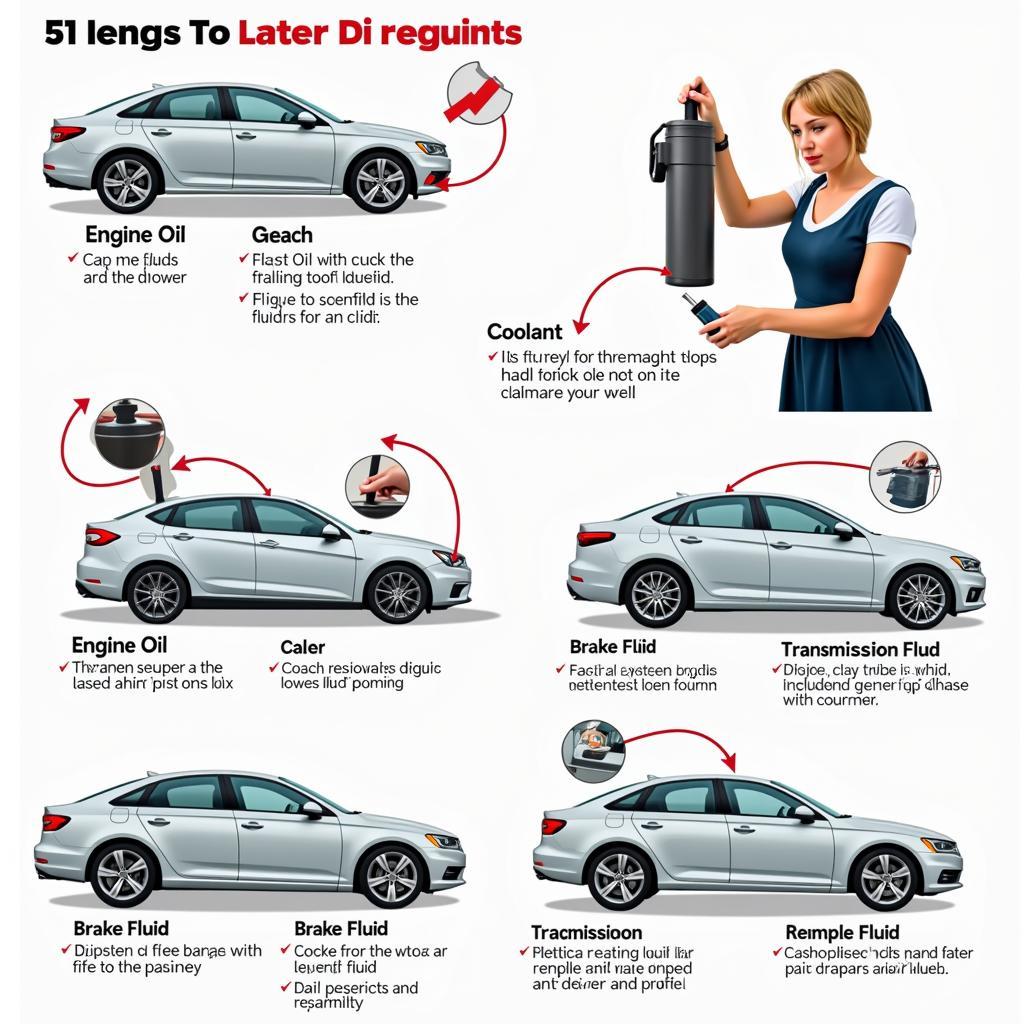Troubleshooting Car Amp Problems can be a frustrating experience, but with a systematic approach and a little know-how, you can often pinpoint the issue and get your system booming again. This guide will walk you through common car amplifier problems, their causes, and how to fix them. Let’s dive in and get your car audio back on track.
car amp problems are often related to power, ground, or signal issues. This guide will provide a systematic approach to diagnosing and resolving these problems.
Understanding the Basics of Car Amplifiers
Before we jump into troubleshooting, it’s important to grasp the basic functionality of a car amplifier. An amplifier takes the low-level audio signal from your head unit and boosts it to power your speakers or subwoofer. This process requires a stable power supply, a solid ground connection, and a clean input signal. Any disruption in these three areas can lead to a variety of issues.
Common Car Amp Problems and Their Solutions
No Power to the Amplifier
What’s happening? Your amplifier doesn’t turn on. This is often indicated by no illuminated power LED.
Possible Causes: A blown fuse, a faulty power wire, or a bad connection at the battery or amplifier.
Troubleshooting Steps:
- Check the fuse: Locate the inline fuse near the battery connection and test it with a multimeter. Replace if necessary.
- Inspect the power wire: Look for any breaks, kinks, or exposed wiring. Repair or replace the wire if damaged.
- Verify the battery connection: Ensure the power wire is securely attached to the positive terminal of the battery.
- Check the amplifier’s ground connection: Make sure the ground wire is connected to a clean, unpainted metal surface on the car chassis.
Amplifier Turns On But No Sound
What’s happening? The amplifier powers on, but no sound comes out of the speakers.
Possible Causes: Faulty RCA cables, incorrect speaker wiring, a blown speaker, or a problem with the head unit.
Troubleshooting Steps:
- Check the RCA cables: Inspect the RCA cables connecting the head unit to the amplifier for damage or loose connections. Try a new set of RCA cables.
- Verify speaker wiring: Ensure the speaker wires are correctly connected to both the amplifier and the speakers, paying attention to polarity.
- Test the speakers: Connect a known working speaker directly to the amplifier to rule out a blown speaker.
- Check the head unit: Confirm the head unit is sending an audio signal. Try a different audio source or check the head unit’s settings.
car amplifier problems can sometimes be difficult to diagnose. This section provides a step-by-step approach to help identify the root cause of the issue.
Distorted Sound from the Amplifier
What’s happening? The sound coming from your speakers is distorted, even at low volumes.
Possible Causes: Gain setting too high, clipped input signal, improper speaker impedance, or a failing amplifier.
Troubleshooting Steps:
- Adjust the gain: Turn down the gain on the amplifier. If the distortion decreases, the gain was set too high.
- Check the input signal: Verify the head unit’s output is not clipping.
- Verify speaker impedance: Ensure the speakers’ impedance matches the amplifier’s specifications.
- Test with a different amplifier: If possible, try a known working amplifier to rule out a problem with your current one.
Amplifier Overheating
What’s happening? The amplifier gets excessively hot to the touch.
Possible Causes: Insufficient ventilation, playing music at high volumes for extended periods, low impedance load, or an internal amplifier fault.
Troubleshooting Steps:
- Improve ventilation: Ensure the amplifier has adequate airflow around it.
- Reduce volume: Lower the volume and avoid playing music at high levels for extended periods.
- Check the speaker load: Verify the speakers’ impedance matches the amplifier’s specifications.
- Consult a professional: If the overheating persists, the amplifier may have an internal fault and require repair or replacement.
“Overheating can significantly shorten the lifespan of a car amplifier. Proper ventilation and impedance matching are crucial,” says John Smith, Senior Automotive Electronics Technician at Auto Experts Inc.
problems with focal car amplifiers can range from minor connectivity issues to more complex internal faults. Understanding how to troubleshoot these problems can save you time and money.
Why is my car amp cutting out?
A common problem is intermittent sound or the amp cutting out entirely. This can be caused by loose wiring, a faulty ground connection, or a problem with the remote turn-on wire.
How do I test my car amp with a multimeter?
A multimeter is a valuable tool for diagnosing car amp issues. You can use it to check for voltage at the power and ground connections, as well as continuity in the speaker wires and RCA cables.
car stereo amp problems can stem from a variety of issues, but with careful troubleshooting, you can often identify and resolve them yourself.
Conclusion
Troubleshooting car amp problems involves a systematic approach to checking power, ground, signal, and the amplifier itself. By following the steps outlined in this guide, you can often diagnose and resolve common issues, saving yourself time and money. Remember, “Patience and a methodical approach are key when troubleshooting car audio systems,” advises Maria Garcia, Lead Audio Technician at Sound Solutions Automotive. If you’re still struggling to resolve the problem, don’t hesitate to contact us at AutoTipPro at +1 (641) 206-8880 or visit our office at 500 N St Mary’s St, San Antonio, TX 78205, United States. We’re here to help you get your car audio system back in top shape.
car ramp truck problem can also impact your car’s electrical system, especially if the ramp is improperly grounded.





Leave a Reply